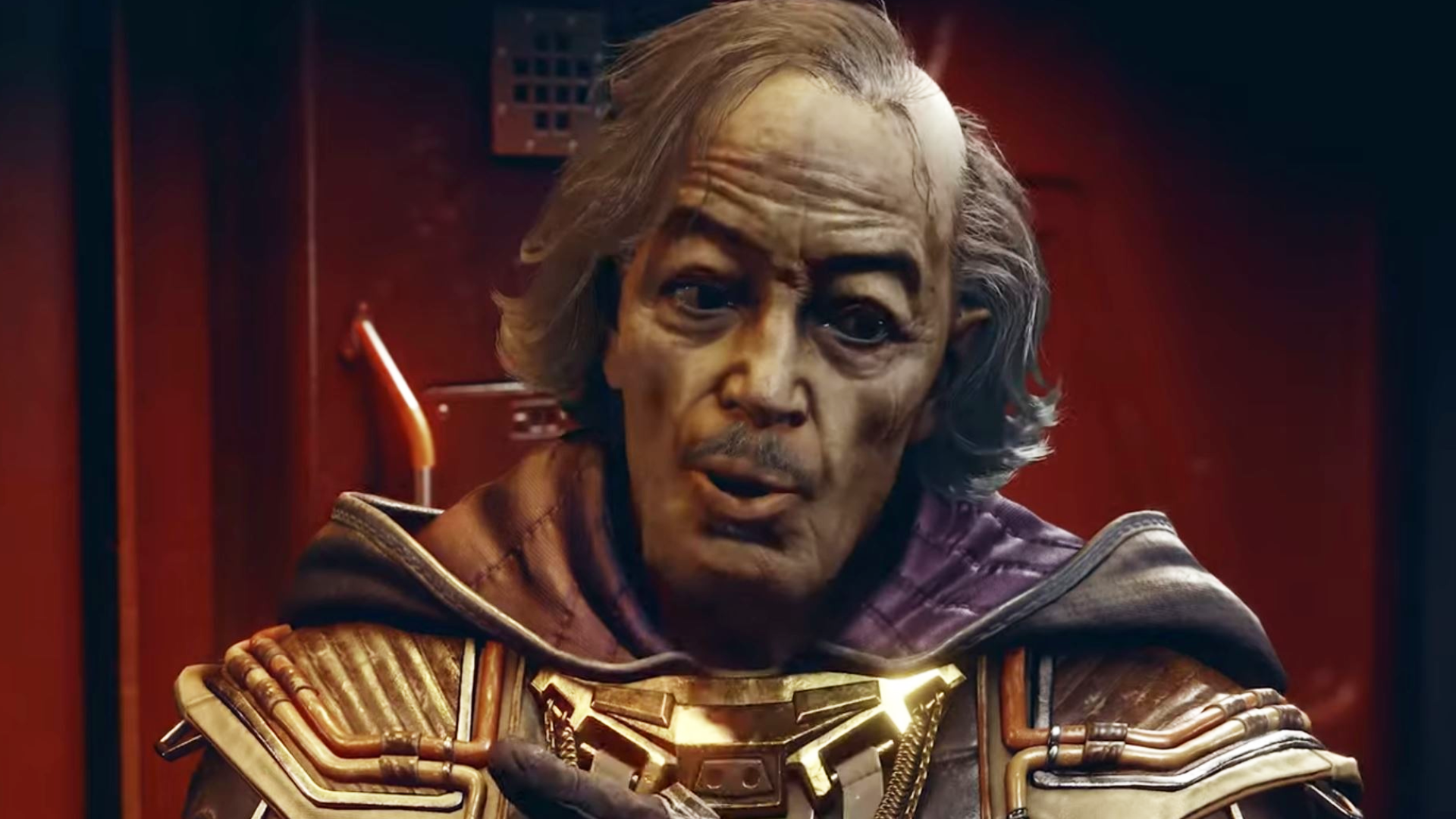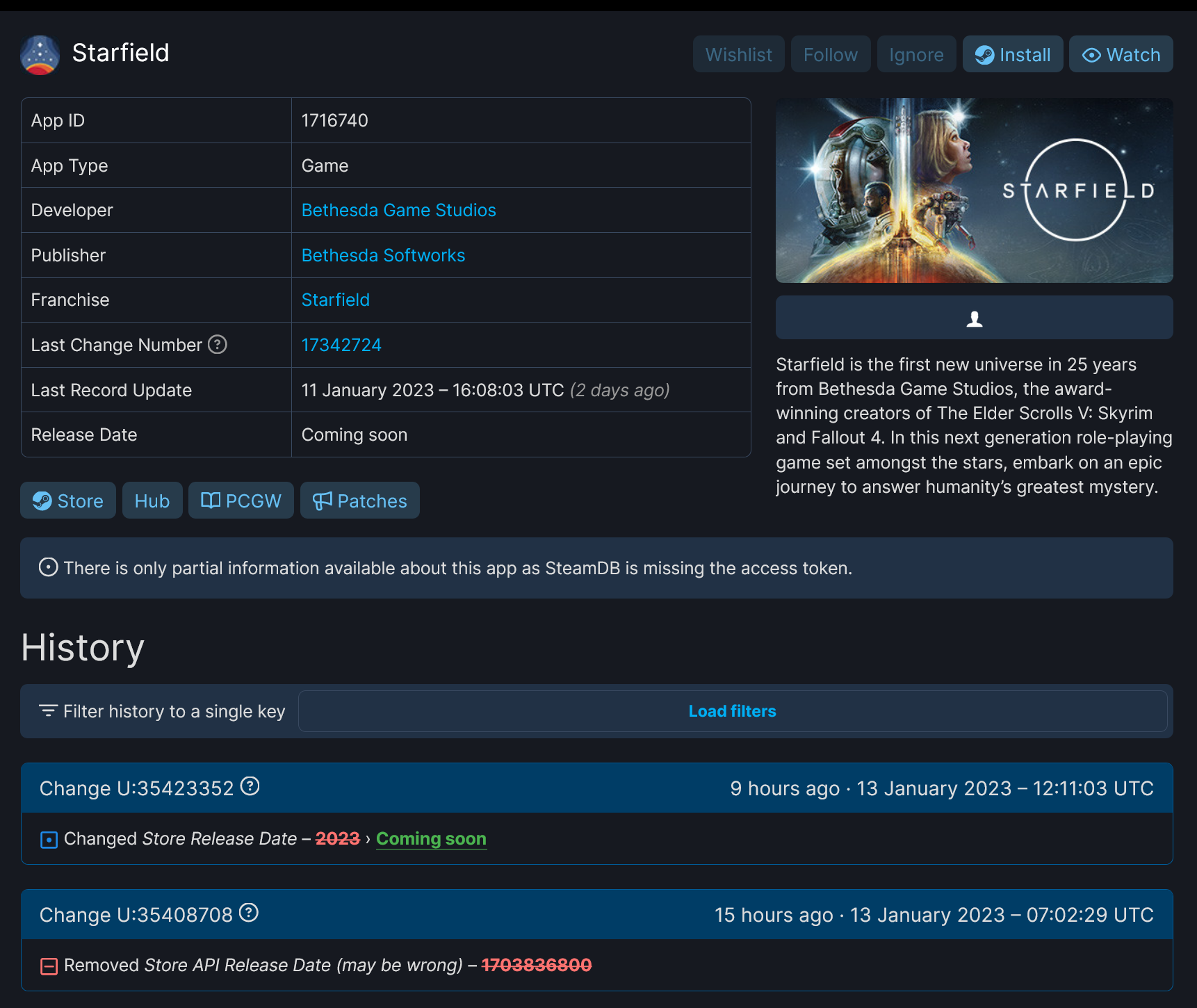Here's why a bunch of games, including Starfield, just changed release dates on Steam
Starfield, Redfall, Ark 2, and a bunch of other games slated for launch in 2023 are now listed as simply “coming soon.”

Keep up to date with the most important stories and the best deals, as picked by the PC Gamer team.
You are now subscribed
Your newsletter sign-up was successful
Want to add more newsletters?

Every Friday
GamesRadar+
Your weekly update on everything you could ever want to know about the games you already love, games we know you're going to love in the near future, and tales from the communities that surround them.

Every Thursday
GTA 6 O'clock
Our special GTA 6 newsletter, with breaking news, insider info, and rumor analysis from the award-winning GTA 6 O'clock experts.

Every Friday
Knowledge
From the creators of Edge: A weekly videogame industry newsletter with analysis from expert writers, guidance from professionals, and insight into what's on the horizon.

Every Thursday
The Setup
Hardware nerds unite, sign up to our free tech newsletter for a weekly digest of the hottest new tech, the latest gadgets on the test bench, and much more.

Every Wednesday
Switch 2 Spotlight
Sign up to our new Switch 2 newsletter, where we bring you the latest talking points on Nintendo's new console each week, bring you up to date on the news, and recommend what games to play.

Every Saturday
The Watchlist
Subscribe for a weekly digest of the movie and TV news that matters, direct to your inbox. From first-look trailers, interviews, reviews and explainers, we've got you covered.

Once a month
SFX
Get sneak previews, exclusive competitions and details of special events each month!
You may have noticed recently that Starfield's listed release date on Steam recently changed, from 2023—vague, but at least within a specific window—to "coming soon," which is vague and utterly without specificity. It was in fact just one of several games to have their launch dates rejiggered today: Others, visible on SteamDB, include Forspoken, Redfall, Ark 2, and Robocop: Rogue City.
The good news is that there's nothing to worry about. Well, probably nothing, anyway. You see, back in October 2022, Valve made a change to the way it handles release dates for upcoming games. Prior to that, release dates on Steam store pages were a Wild West: Some games would list an exact date, others would have something more ballpark—a month and year, maybe—and still others would drop in joke text, like "when it's done."
"Our current hodge-podge of coming soon displays leaves a lot to be desired," Valve wrote at the time. "Some information can be missing or incomplete. Worst of all, the custom text field we used to provide has no localization support, which creates a confusing and inconsistent experience for players across the globe. One-off jokes or references don’t translate, and date descriptions vary from place to place.
"For instance, take the string 5/8/2023 ...is that May 8th, or August 5th? Depends on what country you live in!"
To address those shortcomings, Valve introduced five options developers could select from and switch between, with a "localized and regionally-familiar presentation" for each:
- The exact date. “Aug 24, 2023”
- Month-and-year. “August 2023”
- The quarter of the calendar year. “Q3 2023”
- The year. "2023"
- No date at all. “Coming Soon”
To handle how those dates appear in lists of upcoming games, non-specific launch targets are listed at the last possible date in their time range. So, for instance, if your game is slated for Q1 2023, it will be sorted as though the release date is March 31; if it's simply 2023, Steam will treat it as though the release date is December 31. Essentially, it's an automated placeholder date. And if there's no date at all, it'll appear after all other games that do have a specific date or launch target.
The current expectation is that Starfield will be out sometime in the first half of the year, but since the date on Steam was listed as 2023, it would be treated as though the launch date was December 31. It's reasonable to think that Bethesda would not want that, but it also wouldn't want to publish a date publicly too early—thus, the no-date option.
Keep up to date with the most important stories and the best deals, as picked by the PC Gamer team.
There is one other theory, although it's a bit of a stretch: Valve warned in the October 2022 update that games with release dates that don't fit the new standards will be automatically set to "coming soon" at 12 am PT on January 1. It's possible that Bethesda blew past the deadline without doing anything, and then Valve didn't actually take action to set the dates to "coming soon" because it wasn't really paying attention either. Like I said, it's a stretch, but Steam's isn't the only product page that developers have to manage for their games.
Whatever the case may be here, other games have previously made similar changes, presumably to accommodate Steam's new release date policy: Nightingale, for instance, switched its listed launch target from "Coming in first half 2023—Add to your wishlist!" to "Coming soon" on December 8. I've reached out to Bethesda and Steam to ask about the changes, and will update if I receive a reply.

Andy has been gaming on PCs from the very beginning, starting as a youngster with text adventures and primitive action games on a cassette-based TRS80. From there he graduated to the glory days of Sierra Online adventures and Microprose sims, ran a local BBS, learned how to build PCs, and developed a longstanding love of RPGs, immersive sims, and shooters. He began writing videogame news in 2007 for The Escapist and somehow managed to avoid getting fired until 2014, when he joined the storied ranks of PC Gamer. He covers all aspects of the industry, from new game announcements and patch notes to legal disputes, Twitch beefs, esports, and Henry Cavill. Lots of Henry Cavill.


